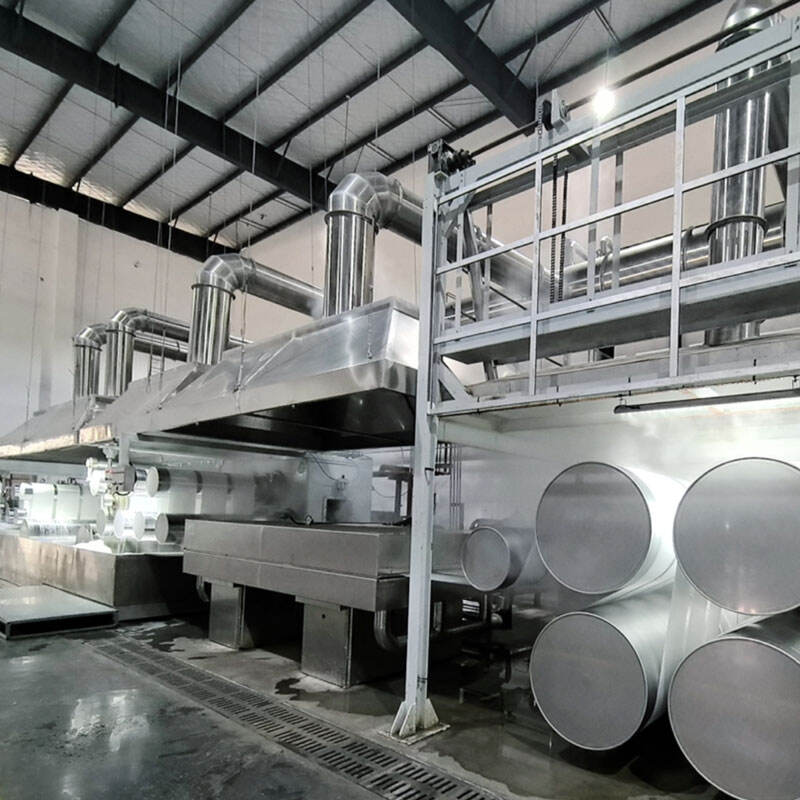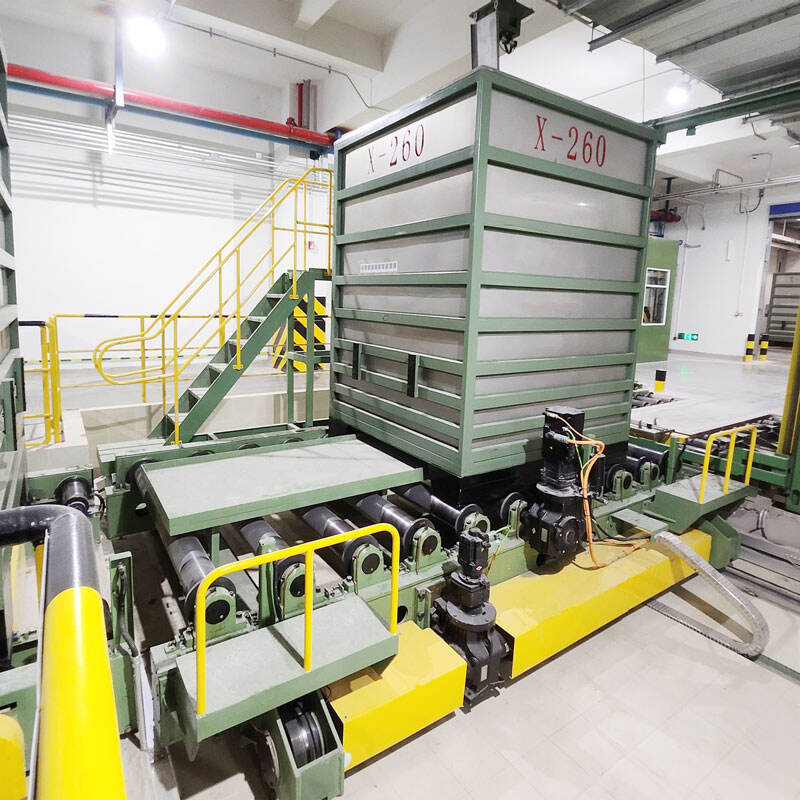Полиэстер буюмдары чөйрөлөр боюнча эзилбей турган, көптүк жана арзан. Полиэстер машинасы жогорку сапаттагы полиэстер тал, пленка жана чиптерди өндүрүү үчүн негизги жабдык болуп саналат жана ар кандай секторлор үчүн туруктуу жана ыңгайлаштырылган материалдарды камсыз кылат. Ири өндүрүш чечимдеринин берилишичи - Шэньчжэнь Софтгем Технологиялык Ко.Лтд. Полиэстер өндүрүшүн жана ага тийешелүү өндүрүш чөйрөлөрүнө багытталган полиэстер машиналарын долбоорлошот, алар өндүрүштүн эффективдүүлүгүн, чыгымдарды төмөндөтүүн жана конкуренттик артыкчылыктарын жакшыртууга мүмкүндүк берет. Төмөндө полиэстер машинасынан эң көп пайда алуучу чөйрөлөр жана бул жабдык алардын өсүшү үчүн негизги мааниге ээ экени туралы сүрөттөлгөн.

Полиэстер машинасы тууралуу түз көйнөк өнөр жайына эң көп пайдасын тийгизет. Полиэстер машинасы күндөлүк кийим, спорт кийимдери, иш жайындагы кийимдер жана сан техникалары сыяктуу ар түрдүү көйнөк өнүмдөрү үчүн негизги башталгыч материал болгон полиэстер талчыктарын чыгарат. Полиэстер машинасы түрдүү талаптарга жооп берген талчыктарды чыгара алат, бул көйнөк өндүрүш өнөр жайынын кеңири талаптарын канааттандырат. Мисалы, жогорку деңгээлдеги полиэстер машинасы полиэстер менен мамык аралаш техниканы сындыра алат, мунун натыйжасында мамык техниканын узакка чейин таптакыр болушу жана бүк жемишке каршы тургунчулугу жакшыртылат. Ошондой эле, Шэньчжэнь Softgem тарабынан оптимизацияланган полиэстер машиналары кемчиликсиз, сапаттуу полиэстер талчыктарын өнөр жайга камсыз кылат. Бул бирдей сапаттуулук көйнөк фабрикаларынын өнүмдөрдүн сапатын жакшыртып, кайрадан иштетүү чыгымдарын минимумга тийгизет. Натыйжада алар чоң тапшырууларды оңой түрдө аткара алышат, ошентип полиэстер машиналары көйнөк өнөр жайы үчүн негизги активге айланат. Түзбөлөнгөн өнөр жай: Полиэстер машинасынан келген ишенчтүү колдоо
Терисиз индустриясы түшүмдүү жана сапаттуу чыгыш материал үчүн полиэфир машинасына тийиштүү. Медициналык бинтовдор, жүз маскасы, геотекстилдер жана гигиена өнүмдөрү (бүтөнчөлөр, жумушчу орундар) көп мөөнөттөгү полиэфирди талап кылат. Полиэфирдин белгилүү жана чоң фунттары медициналык өнүмдөр үчүн антибактериялык полиэфир жана геотекстилдер үчүн каршы полиэфир сыяктуу алмаштырылышы мүмкүн болушу керек. Бул өзгөчөлүктөр үчүн атайын жасалган полиэфир машинасы; мисалы, медициналык деңгээлдеги терисиз өнүмдөр үчүн, производство учурунда полиэфир машинага антибактериялык кошулмалар коюлусу мүмкүн. Ошондой эле, полиэфир машинасынын жогорку өндүрүш кубаттуулугу (күнүгө жүздөгөн тонна) инфраструктураны куруу жана камбаралык жарандык иштери учурунда терисиз индустриянын күчөп келе жаткан талаптарын канааттандырат. Шэньчжэнь Softgem компаниясынын полиэфир машинасы колдонулган PET чыгыш материалдарын колдонууну да тагдырлайт, бул терисиз бизнес үчүн чыгыш материалдарга чыгымдарды төмөндөтүп, экологиялык максаттарын ийгиликтүү ишке ашырышына мүмкүндүк берет жана рынокто алардын конкуренттик артыкчылыгын жакшыртат.
Үй текстили жана тигилечilik өнөрүшү полистер машинелери менен чоң пайда көрдү, анткени полистер буюмдары салыштырмалуу арзан жана жакшы иштейт. Мичиндер, көрпөлөр, шторолор жана диван подушкалары же полистер менен толтурулат же полистерден жасалат, анткени ал жеңил, тазалоого оңой жана плесеньге каршы турат. Полистер машиналары бир учуруктуу көлөмдүү жана эластиктиктеги полистерди өндүрүшү менен үй текстили буюмдары формасын узак мөөнөт сактай алат жана ыңгайлуулугун сактайт. Мисалы, айрым полистер машиналары табигый дагыдан арзан жана кооз болуп саналган бош полистер көрпөлөрүн өндүрөт. Бош полистер менен толтурулган көрпөлөрдүн баасы да жылуулук изоляциясына ээ. Softgemдин полистер машинелери ишкерлерге гибриддүү өндүрүш графигин камсыз кылып, алардын кышкы көрпөлөр үчүн калың, жаздык тигилечилер үчүн ашыкча дем алаткан полистерди камтыган мезгил дагы боюнча тез өзгөрүүчү талаптарга жетиштүү кылууга мүмкүндүк берет.

Автомобильдик сектор полиэстер машинасынын эң маанилүү пайдалануучуларынын бири болуп келет. Кооз заманбап транспорт каражаттары отургучтардын жабдыгы, эшик панелдери, тавандар жана дыбыс изоляциялоо материалдары сыяктуу бир нече бөлүктөрдө полиэстер продуктторун колдонушат. Полиэстер талчылары жогорку температурага, абразивдүүлүккө жана химиялык заттарга турушкан, алар автомобиль ичинин интериерлеринде маанилүү факторлор болуп саналат. Полиэстер машинасы автомобиль өндүрүшчүлөрү колдонгон, отко каршы, тартышы төмөн жана автомобиль өнөр жайынын катуу коопсуздук жана чөйрөгө тийгизилген талаптарын ыйгарган талчыларды түзө алат. Мисалы, жеткиликтүү полиэстер машинасы талчыларды ысыкка каршылыкты жакшыртуу үчүн өзгөртө алат, ошентип, машинанын ичиндеги ысыкта отургуч жабдыгынын тез тозуп, солуп кетпейт. Башкача айтканда, полиэстер машинасынын чыгышы автомобиль терезелерине арналган жана компоненттерди орамалоодо колдонулган полиэстер пленкаларын камтыйт, бул ораманын узак мөөнөттүүлүгүн жакшыртат. Шэньчжэнь Softgemдин полиэстер машинасы сапаттык башкарманын аркасында автомобиль жеткилүүчүлөрү менен ишенчтүү ынтымакташтык түзгөн өндүрүшчүнүн мисалы болуп саналат. Полиэстер продукттарындагы кемчиликтер автомобиль коопсуздугун бузуу менен коркоткон учурда, Softgem өзүн өнөр жайда репутация курган.
Аба тазалоо, суу иштетүү жана өнөр жайда чогулган чопонду алып таштоо үчүн колдонулган сүзгүчтөр полиэфир талдарынан жасалат. Аба тазалоо жана өнөр жайда чогулган чопонду алып таштоо үчүн колдонулган сүзгүчтөр өнөр жай сүзгүчтөрү үчүн полиэфир машинасы менен ыңгайлаштырылган талдардан пайдаланышат. Ар кандай ыңгайлаштырылган жүзүп жүрөн полиэфир машина сүзгүчтөрү май жана чопон сүзгүчтөрү үчүн да колдонулушу мүмкүн. Бул көптүктүк терс ийне ткань сүзгүчтөрдө колдонулган полиэфир машиналар үчүн идеалдуу. Алдын ала чопон сүзгүчтөрүнүн полиэфир машиналары чоң чопон үчүн колдонулушу зарур болгон ыңгайлаштырууну сунуш кылат. Полиэфир машинасынын жогорку эффективдүүлүгү жана туруктуулугу сүзгүч компаниялары үчүн өндүрүштүн кечигүүсүн болгоно албайт, сүзгүчтөр үчүн талдарды тұраактуу камсыз кылат. Кайрадан иштетилген полиэфир сүзгүчтөрүн өндүрүү бул бизнеске жашыл инициативаларды колдоо жана чыгымдарды кыскартууга жардам берди. Бул глобалдуу башталгыч материалдардын баасынын өсүшүнүн жана өсүп келе жаткан полиэфир сүзгүчтөр рыногунун мисалдуу көрсөткүчү.
 Ысык жаңылыктар
Ысык жаңылыктар2024-07-25
2024-07-25
2024-07-25